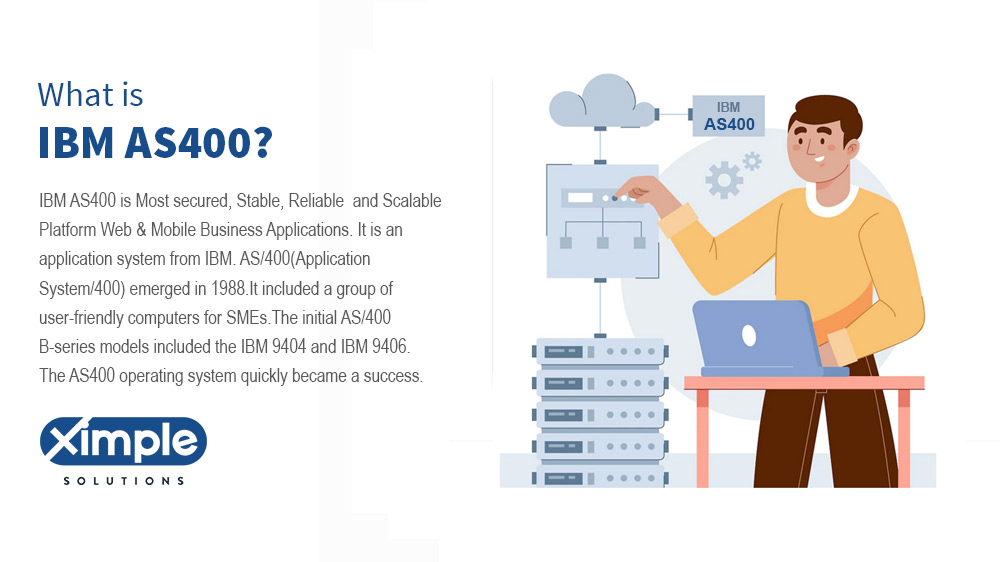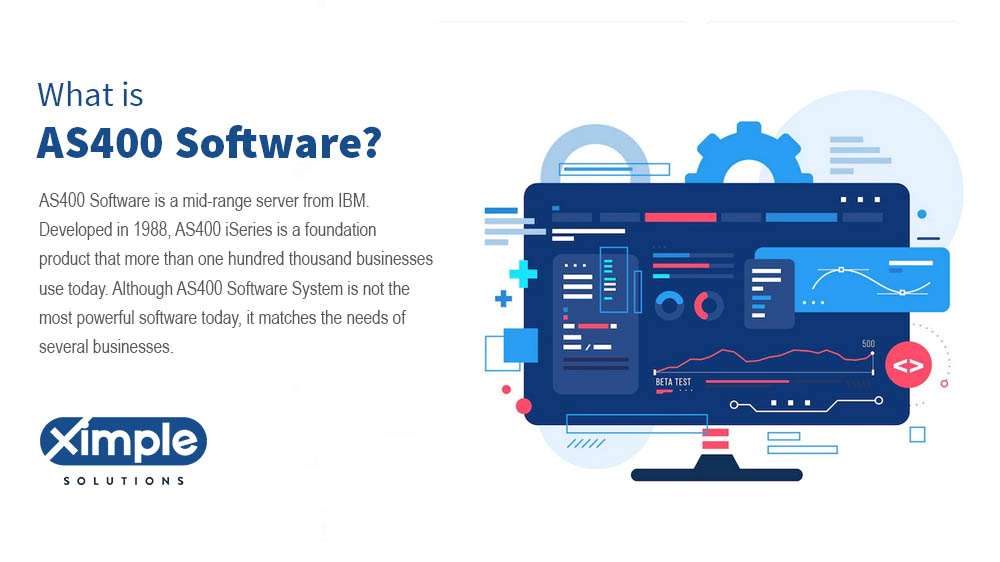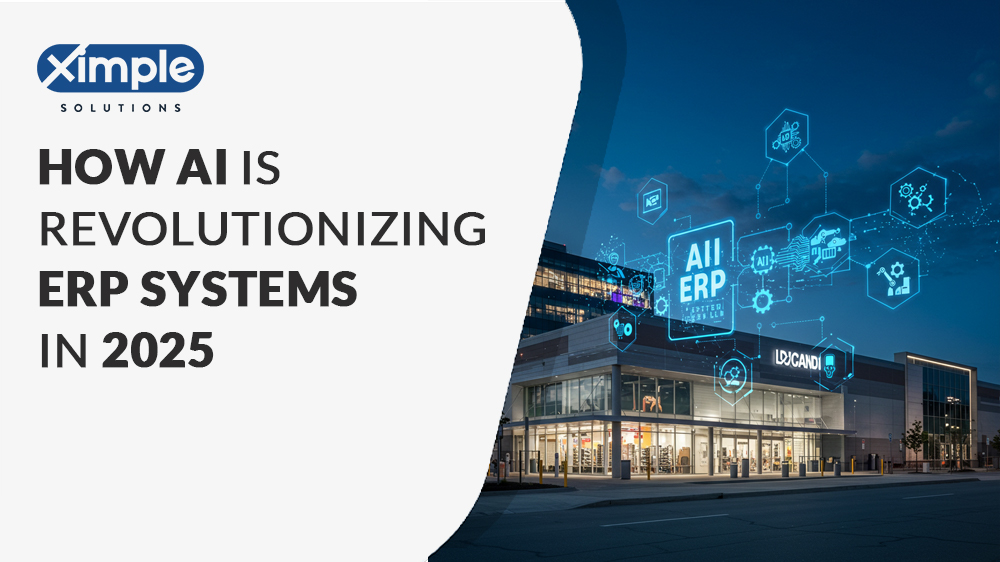Java ERP Software Solutions: The Most Efficient Way To Organize Work
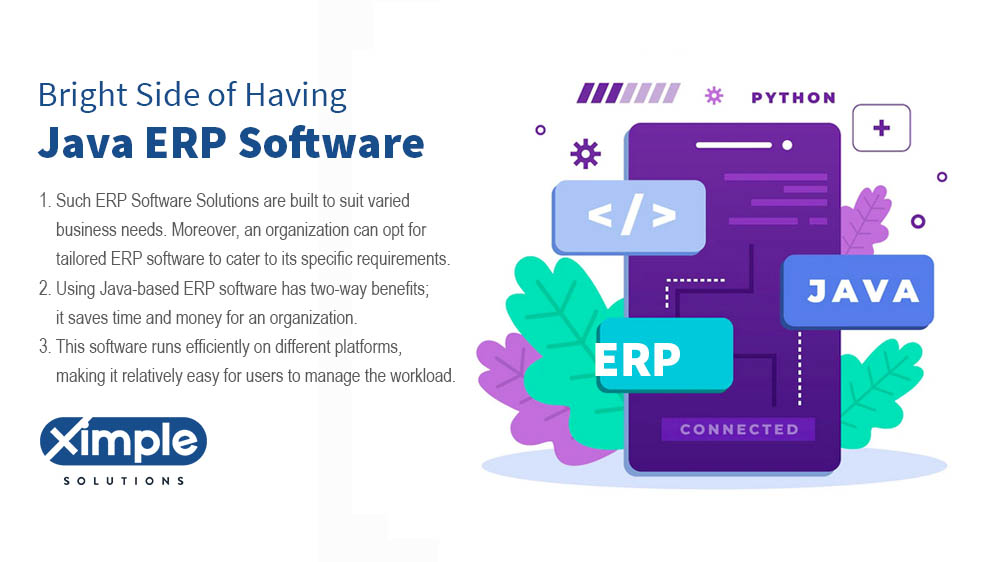
One of the top five most used programming languages- Java, has captured more than 30 percent of the market share. Hundreds and thousands of companies today utilize ERP. One of the crucial components behind the development of an ERP system is Java.
Companies today need robust applications or software that can make their work smooth without compromising on functionality and speed at the same time. Java backs all the requirements seamlessly via a compiled single-module system.
Java ERP Software Solutions are used by more than 50 percent of organizations globally. One of the reasons for an organization’s dependency on the Java ERP stack is that Java is not only quick but is also avant-garde in memory management. This article highlights the features of Java ERP Software Solutions which have made it necessary for organizations to go the whole nine yards in search of them. We’ll also discuss the future trends and challenges that it faces. But before we move on to that part, it’s essential to be in line with ERP. So let’s start with that.
Table of Contents
- Enterprise Resource Planning Software (ERP Software)
- Key Highlights of an ERP Software Solution
- Features of Java ERP Software Solutions that Make it a In-demand Choice
- How are Java ERP Software Solutions Relevantly Utilized in Organizations?
- Bright Side of Having Java ERP Software Solutions in Place
- Major Challenges faced by Java ERP Software Solutions
- Future of Java ERP Software Solutions
- Conclusion
- About Ximple Solutions
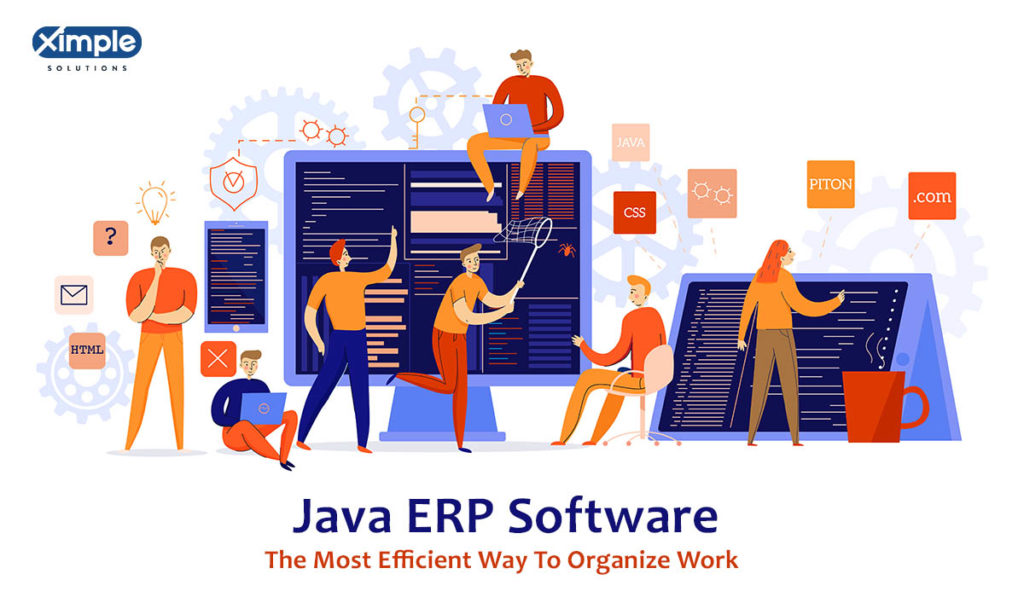
Enterprise Resource Planning Software (ERP Software)
Running a business is not as simple as ABC. It’s quite a biting-a-bullet kind of task. It requires full-fledged planning and allocation of all the resources. Thanks to digitalization which has made it possible to handle day-to-day operations.
Enterprise Resource Planning Software or ERP Software Solutions are crucial for any organization as breathing for us. Such software assists in bringing all the efforts of different departments together to optimize the integration better. To make the unification of diverse business activities simple, ERP Software Solutions were established. Below are the key highlights of enterprise resource planning software or ERP Software:
Key Highlights of an ERP Software Solution
- Integration Of Data & Activities ERP Software solutions is significantly used to integrate the databases and every effort of the different divisions. This is necessary for executing and amalgamating an organization’s business processes without any hefty tasks.
- Data Tracking and Storing Organizations have a bulk of data to process, and ERP Software puts forward the data management in one place, making it quite an easy task to track and process it. This data is then stored in report formats to make its analysis as easy as ABC.
- Finance Management Such software also computes and analyzes financial data, which is crucial to any organization.
- Quick & Easy Access To Data Because enterprise resource planning software integrates the data in one place, accessing it becomes trouble-free.
- No Duplication of Efforts When data is managed, processed, and interpreted using an ERP Software Solution, it keeps the duplication of efforts at bay. This saves an organization’s efforts and time.
- Backs-Up Decision-Making Process ERP software provides real-time data analysis, fostering the decision-making process as fast as a thunderflash.
Features of Java ERP Software Solutions that Make it an In-demand Choice
1. Reliable Programming Language
To keep up with such fast-paced technology, organizations search for ERP software or applications that can put forward optimum levels of stability and are efficiently reliable. Luckily, Java has it all. Java has been constantly upgraded to survive the rapid technological advancements for all these years. Java ERP Software Solutions are backed by several tests that leave no room for errors, and at the same time, they aren’t high maintenance.
2. Scalable Development
ERP software or applications that are developed using Java proffer high scalability. The high-end performance of Java provides power to the developers by providing them with vigorous code libraries, tools, and frameworks which makes it possible to unveil software solutions that can handle traffic loads and resolve problems in the blink of an eye. And that too without much interference in the software’s architecture. This is what organizations need.
High-quality software or application works efficiently cuts down on cost, and is also favorable from a long-term perspective. At Ximple Solutions, you’ll find Java ERP Software Solutions for every wholesale distribution business need for inventory, employee and payment gateways, warehouse management, finance, e-commerce, operations management, or purchase.
3. Platform-Friendly Software
The programming language decides the core functionality of an app or software. The Write Once, Run Anywhere (WORA) specialized programming language- Java, can support this need of the developers. Companies hire developers who specialize in developing ERP Software Solutions to have such software in place that can run adeptly irrespective of platform. Java ERP Software Solutions that are built with Java Virtual Machine (JVM) run on Windows, Linux, Unix, and macOS.
This makes it convenient for developers to understand the behavior of software or an app on different platforms and analyze them for improvements. In addition to this, Java-based apps or software also have scope for improving the Application Program Interface (API) and platform support features.
4. Avant-garde Performance
Java ERP Software Solutions are built according to such a structure based on a multi-threading system to work without any discrepancies. It also supports less memory consumption. This has made software based on Java ERP a favorite go-after alternative for big corporations and organizations. Many large-sized organizations also use this software to reap maximum benefits.
5. Versatile Libraries
Libraries are crucial to every enterprise resource planning software or ERP Software Solution. They’re needed to add on new features, resolve software-related issues or glitches, and upgrade. Several open-source, free-of-cost libraries are present to ease the hassle of developers.
Java also has libraries that have everything. You name it, and it’ll let you alter it. All sorts are in place, whether needed for integrating payment systems, deploying software, etc. In contrast to other technologies, Java ERP Software Solutions follows a comprehensive approach which makes it stand out as the most favored ERP solution.
6. Constant Evolution
Java has been continuously refurbished in order to suit the diverse business needs. To date, several updates have been released, the latest one being Java 18, which was released just last month this year (i.e., March 2022). This is one of the reasons Java is the most sought-after platform for ERP Software development, as the upgrades make it a sustainable option that buries all the hatchet.
7. Smartphone Applications
Good software can be easily operated on both desktop and cell phones or smartphones. These recent years, Java has been in place to develop software solutions, including ERP Software solutions that can be used on cell phones and easily integrated with many applications through Android SDK.
Also, Java ERP Software Solutions are compatible to work on several platforms, which is why it has been regarded as the best programming language for developing Android apps by developers for over a decade.
How are Java ERP Software Solutions Relevantly Utilized in Organizations?
In today’s world, Java is excessively utilized to develop ERP Software solutions that can let organizations sail through business chores effortlessly. It is not limited to just a single industry or sector; talk of manufacturing, insurance, education, healthcare, e-commerce, real estate, finance, communication, or energy, each industry makes use of one or more enterprise resource planning software solutions (or ERP Software Solutions) for several distinct operations.
To serve the distinct requirements of different industries or organizations, Java Enterprise Edition or Java EE (also referred to as Jakarta EE) with enhanced features was rolled out a long time back. Several upgrades have been made to several versions under this (Java EE), including features such as distributed computing and web services. These features help in tackling day-to-day transactions, deployment processes, database management, security, and scalability comprehensively and independently or concurrently.

Bright Side of Having Java ERP Software Solutions in Place
- Since Java ERP Software Solutions are open source, they eliminate the heft of compulsorily linking specific modules and placing a whole team at work to look after its maintenance.
- Such ERP Software Solutions are built to suit varied business needs. Moreover, an organization can opt for tailored ERP software to cater to its specific requirements.
- Using Java-based ERP software has two-way benefits; it saves time and money for an organization.
- This software runs efficiently on different platforms, making it relatively easy for users to manage the workload.
Major Challenges Faced by Java ERP Software Solutions
Even after being a much-sought alternative for various industries, Java-based ERP Solutions still need to cope with the below-stated challenges;
1. Security Adherence Issues
Every organization wants to keep its data safe, and discovering any security threat by the software that they rely upon makes it more than inconvenient to utilize them. Several rollouts of Java, namely Java 5, 6, and 7, along with Java’s VM, have been reportedly found glitched for security aspects, and even after constant upgrades, there isn’t much improvement.
Undoubtedly, Java-based software, including ERP Software Solutions, is among the most relied upon by several business organizations. But, the security aspect of this software has seen a downside for quite some time. Where the high-end performance of Java-based software has left the developers in awe, the security flaws of such software have made it unwanted. Many researchers, developers, and experts have suggested not to use these (Java-based) software as it opens room for malicious attacks by hackers.
2. Poor Architecture
Natively, Java wasn’t designed to be compatible with the cloud-based architecture. But, cloud-based architecture has become an inevitable part of enterprise resource planning software or ERP software. Java lacks this aspect, making the user (or organization) have second thoughts about deploying software based on this platform/language.
3. Excessive Runtime
Compared to other platforms and programming languages, Java is behind in performance. It takes much more time than any different language to execute a task in abstraction. This is so because the high-level codes of this language are first required to be converted into a language that the machine can understand.
4. Memory Issues
Java’s Garbage Collector is as much criticized as it is appreciated. It often hampers the functioning of JVM, which in turn affects the overall performance of the software negatively. This happens because this Garbage Collector stores that data, which is not required for any use.
5. Thread Deadlocks
Java facilitates better sync between the threads. Developers utilize it to its full potential as it resolves tons of complications. But, whenever such threads are used in excess, they affect the user interface adversely by decreasing the speed at their (user’s) end. Not only that but many times, this results in the formation of gridlocks where several threads use a single lock, which then takes more time to release; consequently, it further delays the tasks.
Future of Java ERP Software Solutions
Java ERP Software Solutions are used excessively to date even after several shortcomings in its way of operating discussed above as most organizations can’t overlook its features and offerings. Nevertheless, since technological advancements are ever-evolving, let’s look at the future of Java-based ERP software.
1. Cloud-based Solutions
Cloud-based software solutions have been in use for quite a considerable time now. Java is also constantly being upgraded to be able to launch/roll out Cloud-based ERP Solutions, which have enhanced the security levels and handle things more precisely.
2. Enhanced Use Of Artificial Intelligence (AI)
AI systems are not merely equational algorithms anymore. The advancements in the industry have broadened the way to look at them, and now, developers are looking for more and more ways to incorporate ERP software with in-built AI systems. With this, the functionality of Java-based ERP software solutions will be extended in the future.
3. ERP and Finance
Businesses prefer a comprehensive tool that can facilitate their tasks efficiently for them. And, there is a primary developing market of ERP solutions that does not turn a blind eye towards one of the most crucial departments of any business organization, i.e., the finance department. ERP solutions are rapidly being modified with different modules that can take care of everything from payroll to fixed assets.
4. Low-Code ERP Solutions
We’ve already discussed that Java ERP Software Solutions require a complicated coding structure. Thus, the futures market is searching for methods to implement low-code systems that will require the least coding and manage minor tasks with automated systems in place. Such ERP Software Solutions will make an organization’s tasks easy and diminish the need for complex technical knowledge.
5. New Age IoT
Internet-of-Things (IoT) is another advanced sector where developers seek to include ERP software. Java ERP Software Solutions compatible with working on distinct platforms will consolidate operations more tactfully in this industry.
Conclusion
Organizations can’t do without ERP Solutions. Managing the operational activities of a business requires efforts in every department, but at a certain point, the actions of these differentiated departments align together to attain the organizational goals. This is where ERP Solutions come into play. And Java has enjoyed the title of being the most-used and in-demand programming language for developing ERP Software Solutions. The above article has marked significant aspects revolving around Java ERP. If you are in the wholesale distribution business and exploring cloud-based Java ERP, then Ximple solution offers Next Generation Scalable ERP.
About Ximple Solutions
If you’re searching for a perfect partner that can take care of your business activities as if it’s their own, then contact Ximple Solutions today and avail yourself of a kind cloud ERP and services from their professional team.

